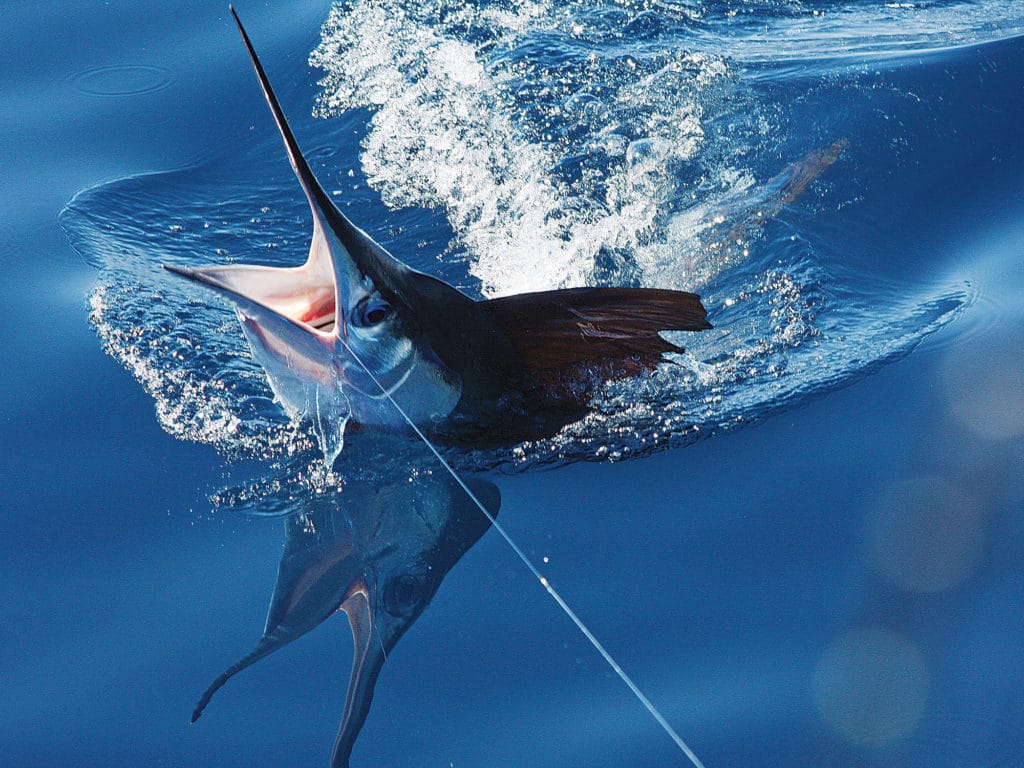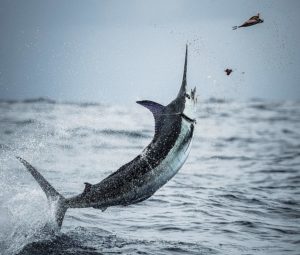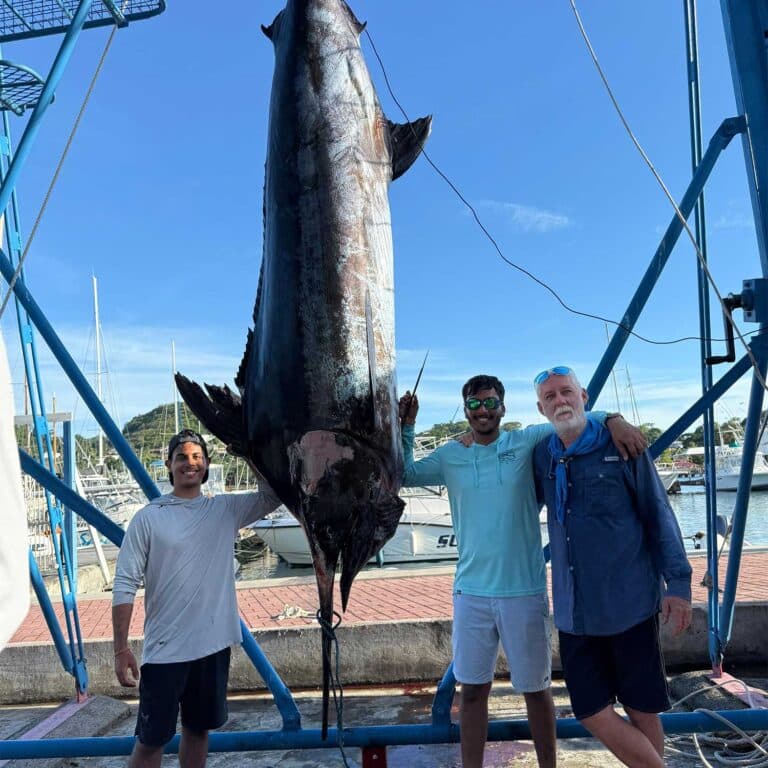
Investigation
Many offshore anglers are unaware it is illegal in the United States to remove an Atlantic billfish from the water unless it is going to be retained. The management measure makes sense, after all, because billfish are adapted to respiring in the water and not out of it. But really, how much damage does a billfish sustain during the few minutes of air exposure required to take to a photo of an angler with their first billfish? A lot, according to recent research from the Virginia Institute of Marine Science.
Graduate student Lela Schlenker was investigating the physiological effects of angling time for white marlin caught on circle hooks. Fish in three categories of fight times (less than 10 minutes; 10 to 20 minutes; and more than 20 minutes) were removed from the water for about two minutes to obtain a five-milliliter blood sample from the aorta and to attach a 30-day pop-up satellite archival tag. She observed unexpectedly high levels of post-release mortality even after fights as short as five minutes, further determining that fight time was not a good predictor of mortality. Six of 21 fish died (28.6 percent), a level of post-release mortality more than 15 times higher than observed in a previous study I performed in which only one of 59 tagged fish did not survive. The only differences between the studies were that in my study, fish did not undergo blood sampling and were not removed from the water. This poses the question: Was the increased mortality in the recent study due to the air exposure or the blood sampling?
I received funding from NMFS to directly address the effects of air exposure on white marlin. The experiment aimed to place 21 30-day PSATs on white marlin caught on circle hooks and brought on deck for air-exposure times of one, three or five minutes. Last September, the crew of Healthy Grin, students Ben Marcek and Willy Goldsmith, and I deployed 18 of 21 tags off Virginia.
Their results demonstrated that air exposure greatly increases post-release mortality rates. Although sample sizes were not large, there was an increase in post-release mortality with time of air exposure: One of six fish with one- minute air exposures died; two of five fish exposed for three minutes died; and four of seven five-minute fish died. All but one of the seven mortalities occurred within 30 hours of release; only one of the seven mortalities was due to predation, which occurred to a five-minute fish 12 days after release. These two studies clearly show air exposures of even one or two minutes can prove deadly to white marlin and likely other billfish as well, so please keep them in the water where they belong!







